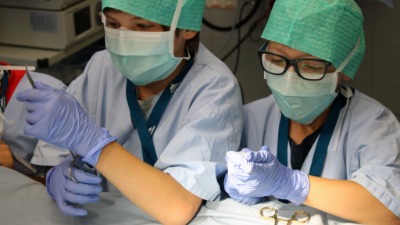Action day
- Austria,Tyrol
- 2002

| Time frame | |
| Categories | |
| Level of Schools | |
| External Partners | |
| Type of Schools | |
| URL | |
| Number of Schools involved | |
| Number of Schoolheads involved | |
| Number of Teachers involved | |
| Number of Students involved | |
| Number of Parents involved | |
| Number of External Partners involved |
During the “Action days” young students and school classes are invited to join interactive workshops at the University of Innsbruck. Around 50 workshops from the fields of humanities, economics and natural sciences as well as technical sciences enable over 2000 young students to experience science up close and ask questions.
To invite young students / school classes to the University of Innsbruck, and to bring them into contact with science and research at the university.
To invite young students / school classes to the University of Innsbruck, and to bring them into contact with science and research at the university.
Good contacts to Tyrolean schools. Increasing numbers of school classes taking part in the event, and in the events of the children’s university: workshops in schools as an outcome of the visit at the university.
In 2002 it was the first time when schools and school students were invited to the university, the starting point for closer connection between schools and universities, established program for schools - intensive connection between schools and the university.
Interactive workshop-concept, eye-level of meeting between young students and scientists, mutual learning.
In 2002 it was the first connection between schools and the university, now it is established and a fixpoint in the curriculum of the schools and the university.
Interactive workshops: show the young students what science and research means, what scientists are doing, young students get a gain insight science and research.
As we invite young students from the last class of the elementary school, children with different social and cultural background can come to this activity.
Eye-level between scientists and young students, take specially care and attention to children: take children serious, mutual learning - scientists should listen to children.
Not always, but sometimes scientists from different disciplines work together on a special subject. Interdisciplinarity is difficult.
Not very often. Sometimes practitioners are also from outside the university take part in the action day.
Connecting science and research with regional aspects, for example avalanches, regional food, mountains, agriculture, local archeology (Ice-Man).
More or less. We have a children´s council which advices us, also concerning this program.
We do a lot of workshops with our scientists. Especially in arts we invite external partners to cover the field of arts, because we don´t have an art faculty at the University of Innsbruck.
Throughout the years, our scientists have learned to communicate with children, which has also an influence on their normal teaching with students.
